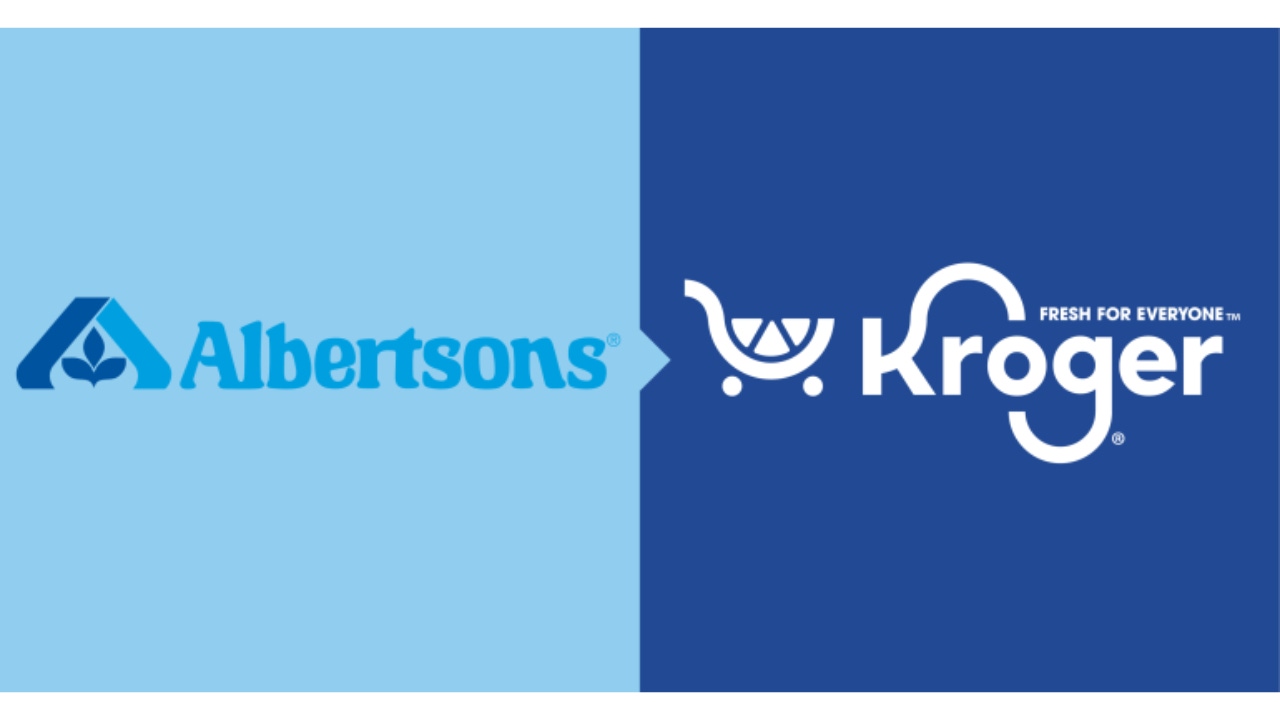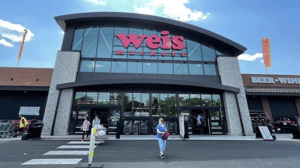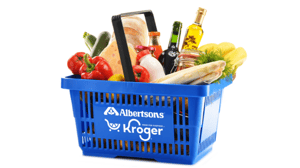Kroger, Albertsons long-pending $24.6B merger blocked by Oregon and Washington courts
Two of three cases rejected the deal on Tuesday, effectively ending the proposal

Judges in Oregon and Washington on Tuesday rejected the proposed $24.6 billion merger of grocery giants Kroger and Albertsons.
U.S. District Judge Adrienne Nelson in Oregon issued a temporary injunction against the proposal, and King County Superior Court Judge Marshall Ferguson declared the merger “unlawful.”
The decision in Oregon was released less than an hour before the decision was handed down in the Washington case.
The Oregon lawsuit was filed in late February by the Federal Trade Commission and attorneys general from eight states and the District of Columbia.
“Both defendants gestured toward a future in which they would not be able to compete against ever-growing Walmart, Amazon, or Costco. Without the scale afforded by the merger, defendants argue, it will be more difficult for traditional supermarkets to survive in the long term,” Nelson wrote in the decision. “The overarching goals of antitrust law are not met, however, by permitting an otherwise unlawful merger in order to permit firms to compete with an industry giant.”
In Washington, Ferguson wrote that Kroger and Albertsons’ plan to divest 579 stores to C&S Wholesale Grocers failed to provide the adequate competition “not because it divests too few stores, but because C&S is unlikely to be able to run them in a way that restores competition.”
Nelson said the preliminary injunction “in no way forces them” to abandon the case, but industry analysts have speculated that such an injunction would bring the merger effort to an end.
“An injunction simply pauses the merger. Any harms defendants experience as a result of the injunction do not overcome the strong public interest in the enforcement of antitrust law, especially given the difficulty in disentangling a premature merger,” Nelson wrote.
It’s still uncertain when a decision will come from the third antitrust case in Colorado.
Both Kroger and Albertsons released statements following the decisions. Neither company specified in their statements whether they would abandon the merger plan, saying only that they are reviewing their options.
“Through its proposed merger with Albertsons, Kroger would invest more than $1 billion in lower grocery prices, invest an additional $1 billion in higher grocery worker wages, and invest an additional $1.3 billion to improve Albertsons stores,” the statement from Kroger noted. “Kroger is disappointed in the opinions issued by the U.S. District Court for the District of Oregon and the Washington State Court, which overlook the substantial evidence presented at trial showing that a merger between Kroger and Albertsons would advance the company’s decades-long commitment to lowering prices, respecting collective bargaining agreements, and is in the best interests of customers, associates, and the broader competitive environment in a rapidly evolving grocery landscape.”
Albertsons said it is disappointed by the FTC decision.
“We believe we clearly outlined during the proceedings how the proposed merger would expand competition, lower prices, increase associate wages, protect union jobs, and enhance customers’ shopping experience,” Albertsons said. “We are carefully reviewing the court’s opinion and are evaluating our options in accordance with the merger agreement.”
Throughout all three of the cases, Kroger and Albertsons have argued that their biggest competitors are not one another but larger players like Walmart, Amazon, and Costco, but Nelson noted in the decision that in markets where Kroger and Albertsons overlap, the two traditional grocery chains consider each other their primary competitor.
“In locations where defendants overlap, where Kroger monitors pricing of ‘everyday essential’ grocery items, Kroger most commonly price checks traditional supermarkets and supercenters, accounting for approximately seventy-nine percent of its price checks,” the decision noted.
Nelson wrote that “retailers that fall outside of the supermarkets submarket, such as Walmart, Whole Foods, Costco, and Amazon, consider a variety of retail categories, including supermarkets, limited assortment stores, dollar stores, ecommerce retailers, and natural and gourmet stores, to be competitors.”
“Supermarkets are distinct from other grocery retailers. Supermarkets offer a larger selection of fresh and non-perishable items, a one-stop shopping experience that appeals to a particular consumer's preference to meet all their grocery needs in one location, and a customer service focus with deli, bakery, meat, and other specialized departments,” Nelson wrote. “The evidence that industry professionals understand supermarkets to be a distinct category of stores that compete with each other, and that supermarkets monitor each other’s pricing and are sensitive to changes bolsters the conclusion that supermarkets are a submarket within grocery retailers.”
Similarly, Ferguson said in his decision that the grocers’ view of competition is “unduly broad.” The decision refuted claims that Kroger and Albertsons compete directly with other formats such as Walmart, Target, Costco, and Amazon.
Ferguson noted testimony showing that Albertsons’ stated in an internal study that if customers went elsewhere to shop, they would likely go to another traditional grocery chain.
“In analyzing consumer diversion, the state’s competition economist expert witness, Dr. Nitin Dua, relied upon an internal study performed by Albertsons that indicated that the vast majority of sales from closed Albertsons supermarkets in Washington state would divert to other supermarkets—not to other store formats,” Ferguson wrote. “The study found that if an Albertsons were to close, 90% of its sales would divert to other supermarkets and just 10% would go to other store formats. Even if a Costco was located within three or five miles, diversion from a closed Albertsons store would still be less than 5%.”
Following Ferguson’s decision, Washington Attorney General Bob Ferguson said in a press release that Kroger and Albertsons are “the two largest supermarket chains in Washington and the second and fourth largest supermarket operators in the country.”
“More than half of all supermarkets in Washington state are currently owned by either Kroger or Albertsons, and they account for more than 50% of all supermarket sales in the state. Albertsons owns Safeway and Haggen, while Kroger owns QFC and Fred Meyer,” he wrote, calling the decision “an important victory for affordability, worker protections and the rule of law.”
Meanwhile, the FTC also released a statement applauding the decision in Oregon, with Bureau of Competition Director Henry Liu calling it “a victory for the American people.”
“This historic win protects millions of Americans across the country from higher prices for essential groceries—from milk, to bread, to eggs—ultimately allowing consumers to keep more money in their pockets. This victory has a direct, tangible impact on the lives of millions of Americans who shop at Kroger or Albertsons-owned grocery stores for their everyday needs, whether that’s a Fry’s in Arizona, a Von’s in Southern California, or a Jewel-Osco in Illinois,” Liu said.
The United Food & Commercial Workers, which represents more than 100,000 grocery workers across the country also released a statement saying that both the Oregon and Washington decisions were “well-reasoned” and that approving the merger “would be bad for workers who deserve a workplace where they can be paid well for their labor, be safe and be respected.”
“We call on Kroger and Albertsons executives to abandon this misguided merger and turn their focus back where it belongs: operating grocery stores. They should redirect the billions of dollars that had been earmarked to pay off Albertsons’ shareholders to instead re-invest in our stores,” the union said.
About the Author
You May Also Like






